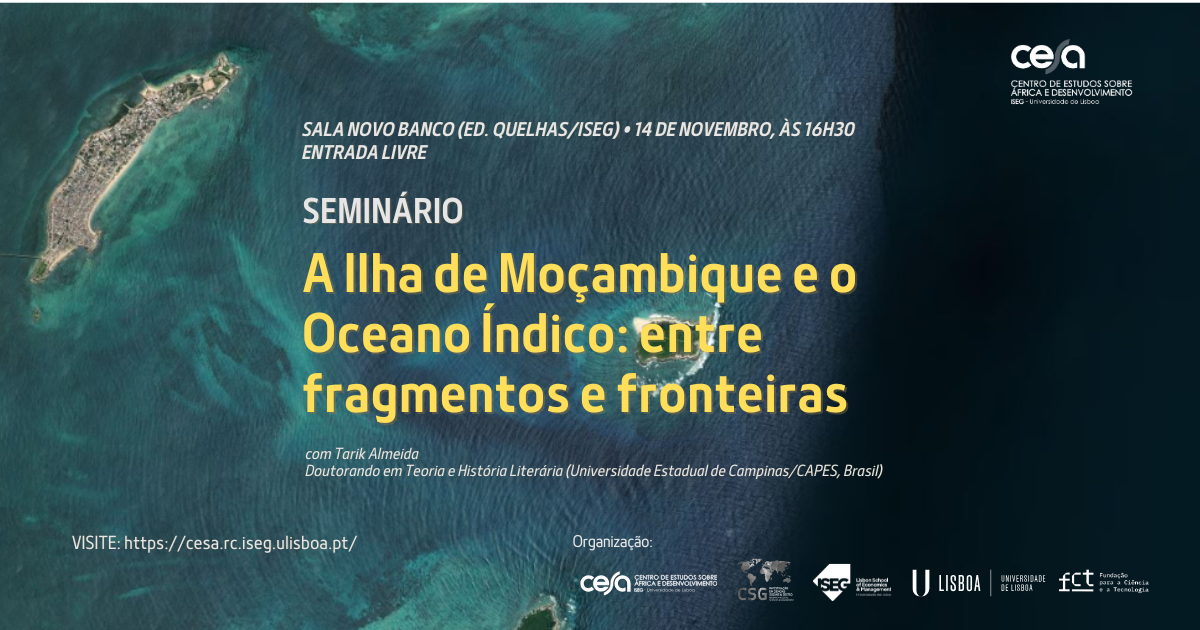CEsA - Centre for African and Development Studies invites you to the Seminar on "Mozambique Island and the Indian Ocean: between fragments and borders", which will take place on the 14th November, at 16.30 in the Novo Banco Room - ISEG (Rua do Quelhas 6, Quelhas, 4th Floor), with free admission.
The presentation will be given by Tarik Almeida, a PhD candidate in Literary Theory and History at the Institute of Language Studies of the Universidade Estadual de Campinas (IEL/Unicamp - CAPES/Brazil). Since September, the researcher has been carrying out an internship hosted by CEsA, under the supervision of researcher Jessica Falconi and as part of the Sandwich PhD Abroad Programme (PDSE/CAPES).
The event will take place from 16.30 to 18.00, in the Novo Banco room (ISEG, Quelhas, 4th Floor).
Free admission.
Further information available HERE.
About the Island of Mozambique and the Indian Ocean between fragments and borders
- How can the island of Mozambique and the Indian Ocean be studied as "aesthetic and conceptual" devices for African literature?
- How might the genealogical position of Mozambique Island and the Indian Ocean influence the construction of poetic and cultural identities in Mozambique and, more broadly, in African literature?
- What challenges and opportunities arise in contemporary literary criticism of African literatures with the incorporation of ecocritical perspectives?
This seminar aims to interrogate and revisit two important locations for a systematic study of Mozambican poetry, as part of its Indian character: the Island of Mozambique and the Indian Ocean. To do this, we attempt to conceptualise the relationship between fragment(s) and border(s) in order to revisit: 1) some historical and historiographical issues of the Island of Mozambique and the Indian Ocean; 2) the possible genealogical position of the Island and the Indian Ocean as "aesthetic and conceptual" lcations (Brugioni, 2021) for the study of African Literature; 3) the role of literary criticism of African Literature in the Contemporary Era, within the area of ecocriticism. The relationship between border and fragment accordingly acquires a methodological and conceptual vision and will be studied as units of analysis to (re)think the Island of Mozambique and the Indian Ocean and their ecological, historical, and cultural borders. The corpus adopted for this seminar originate mainly from Mozambican poetry, based on the poetic production of authors such as Luís Carlos Patraquim, Ana Mafalda Leite, and Sangare Okapi, while at the same time seeking to insert them into into their intertext networks within the Mozambican correspondence context.









